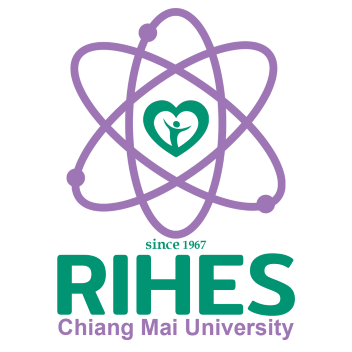Research Center for Molecular and Cell Biology
Research Focus
The Research Center for Molecular and Cell Biology conducts basic and applied research on infectious diseases with a focus on disease carriers, detection methods, pathogenic mechanisms, and host immune responses. By applying fundamental techniques in molecular and cell biology to the study of infectious disease, the center’s research aims to improve clinical understanding of disease diagnosis and treatment. We hope to increase our national capabilities and decrease our reliance on foreign technology through strategic projects such as protein profiling during antiretroviral drug therapy, resistance testing of pathogens, and chemical-resistance evaluations of insect carriers.
Overview of Research and Resources:
- Proteomics
-
- Dark room for film development
- Cell Biology and Immunology
- Virology
- Molecular Biology
- Pre-PCR room
- Post-PCR room
- Nested-PCR room
- Cold Room
- Central unit for research support: Laboratory Service and Management Unit (LSMU)
Solving Problems, Building Knowledge, and Developing the Economy Through Research
Insect Resistance Mechanisms
Our research collaboration starts with problem-based research that addresses a current issue, such as the propagation of mosquito vectors. Recent community growth and migration has led to the increasing spread of communicable, mosquito-borne diseases. The extermination of mosquitos using insecticides has become necessary to control the spread of infectious diseases lacking vaccines, like malaria and dengue fever. However, the safety, efficacy, and sustainability of these pesticides have yet to be scientifically studied. Research into insect repellents can inform policy decisions by the Ministry of Public Health and help communities determine the safest way to use these chemicals. The research center is already working in collaboration with appropriate institutions to apply our research and provide lasting solutions.
Cellular Immunology
Our investigation into the characteristics of cells involved in the immune responses after pathogen exposure and during infection is useful for future vaccine development and can be applied to other topics of immunology such as autoimmunity and allergies. Additionally, genetic studies of the immune system have revealed genes associated with disease progression in HIV patients, providing important information to physicians to improvement treatment outcomes.
Virology
Our study of viruses focus on those in the Thai population, such as HIV and HPV, and are useful for improving viral detection and antiviral therapy in countries with limited resources. For example, our research on the characteristics of co-receptors used by HIV for cell entry is useful for treatments which inhibit HIV from entering cells, and the inexpensive test for drug-resistant HIV that we’ve designed can be used to screen patients before they start antiretroviral treatment. Our development of genotyping and viral-load methods to monitor cervical cancer are also useful during cancer screening and follow-up appointments. By collaborating with the Faculty of Medicine, these techniques will decrease the domestic reliance on imported technology.
Cell Signaling Proteins
Proteins are vital to the function of living cells. We are interested in protein function and expression among different cell types. In particular, research into the signaling proteins involved in cellular responses to stimuli may enable further control of living processes. Protein-protein interactions are another area of study that is applicable to the design of protein inhibitors for infected patients and vital to the discovery of protein patterns responsive to drugs that can be used as biomarkers for antiviral therapies.



































